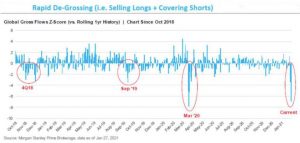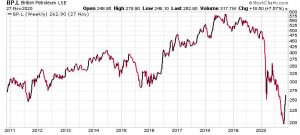Click Here for Printable Version
After a brisk start to the year markets faded towards the end of the month. Local index performance primarily reflected the nature and extent of each country’s Covid-19 lockdowns and also the speed of their vaccine roll-out.
In local currency terms France and Germany were down by around 4%, whereas the Far East and Emerging markets were up by 4% and the FTSE 100 was down by 0.8%.
Ultimately, markets were and still are, in a battle between the mutating virus and the vaccines, however, other notable factors took place during the month. In Europe, a slow vaccine roll-out was turned into a full diplomatic incident.
Hopefully, this has now been resolved, but for markets it has raised important long term questions.
Secondly, at the end of the month markets experienced a new dislocation with what appeared to be home based “hobby” traders talking on the might of the hedge funds in a “social media storm”.
Our experience over many decades suggests that, as ever in markets, all maybe not what it appears to be?
Gamestop
One of the consequences of the global lockdowns is that many employees working from home have more money than usual in their bank accounts.
Also in the USA, the government has sent everyone a sizeable cheque in the post, this been critical financial support for some, but for others, a lottery win. In economic terms this excess liquidity should be used for reducing personal debt but instead large sums have been deposited in US share trading accounts.
There are also many semi-professional sports gamblers with very little to bet on.
Up until January this new money went into trading Tesla and Bitcoin, but based on a tip on a Reddit (social media platform) chatroom these traders moved into a small US games retailer Gamestop.
This company was a particularly good target, some hedge funds believing that the company was about to become bankrupt had sold shares they hadn’t got with the view of buying them back at much lower prices.
This is known as short selling, it is nothing new, it has been part of stock markets since London’s coffee houses in Georgian times. But, when you sell shares you haven’t got, how do you complete the sale contract and deliver shares to the buyer?
Short sellers have therefore to borrow the shares off existing shareholders and pay them interest.
A particular and very unusual quirk of the Gamestop situation is that more shares had been sold short than actually physically existed.
Clearly, this does not make sense, but it is not prohibited under current US regulation. In fact 140% of the share capital had been sold short, i.e. existing holders had essentially lent out more shares than they actually had.
This is a dangerous situation and one that was ripe for what is known as a “short squeeze”.
This is when the short sellers are forced, by their own risk controls, to cover losses by buying shares back. Also existing shareholders may wish to sell into the rally and thus call back their shares from the short sellers.
This creates a “melt-up” in the price. This is what happened right at month end and led to some hedge funds having to sell a wide range of other holdings to cover losses, this is known as de-grossing, or cutting gross market exposure.
The heavy selling (nearly the same as in the March 2020 Covid-related sell-off) in mainly US equities tipped the indices into a negative numbers at month end.
Whilst Gamestop was ripe for such a short squeeze, what was surprising is that it took home based hobby traders to spot what the professionals hadn’t?
Or could it be that those on the Reddit platform are actually professionals or other hedge funds taking advantage of an anonymous, unregulated medium to inflict pain on competitors? We may never know, but the pattern of trading in these shares, to our eyes, does seem to reflect professional rather than amateur activity. Nevertheless, the ensuing publicity has created a stampede in new account openings for the various trading platforms.
We have seen this before, it rarely ends well.
It is though symptomatic of the excess global liquidity in markets, which for long term investors, means we will get more volatility.
European Union
The very public disagreement between the EU and vaccine manufacturers has had a knock on effect on markets.
Rather than looking at the rights and wrongs of this dispute it is the long term message it sends to the markets that is the greater concern. Post the UK’s departure from the bloc the message was resolutely that the EU would move forward with its long stated plan to create an “ever closer union”.
Markets did cheer the creation of EU bonds and the huge e750billion stimulus plan, however, concerns are setting in.
The creation of a super-state will require leadership with first rate diplomatic skills and a clear and enthusiastic vision for the future. The recent crisis does not suggest that those qualities are currently present in Brussels? Clearly, this may change and much will also
depend on next year’s elections in France and Germany. In the meantime, Brussels has to start spending the e750billion.
Markets do remember the Juncker stimulus package, which was never spent, the same appears to be happening again.
Europe does matter, the banks remain very weak and the success of the euro is critical to financial markets. Another credit crunch that starts in Europe, remains a significant long term risk to markets.
BP
Oil companies are important, even at their current subdued levels, BP and Shell are 8% of the FTSE 100 and form a key part of most UK equity portfolios.
Recently, BP reported a $5.7 bn loss for 2020 as the pandemic took a heavy toll on oil demand. It also warned of a tough start to 2021.
Nevertheless, the company’s CEO reiterated that its strategic transition to a greener future remained on track. It is aiming to ramp up renewable power generation to 50 gigawatts by 2030, up from 3.3gw currently, whilst slashing oil output to reduce CO2 emissions.
This is perhaps one of the biggest strategic changes in direction ever attempted by such a large British company, success will be critical for many UK funds.
Markets
The Gamestop saga seems to have passed and investors are now back focussing on the key market strategy of the past two months i.e. the reflation trade.
Good US economic data, expanding vaccination programmes and signs of progress for Joe Biden’s $1.9trillion stimulus plan have reinforced trades that focus on inflation and economic growth.
Recent US PMI data suggest that US manufacturing remains robust, however, it also indicated that raw material prices have started to rise to their highest levels since 2011. Some inflation is good, it is a sign of success, just not too much.
This data has been reflected in US Treasury Bond yields and also the much watched difference between 5 year and 30 year bond interest rate.
The 5 year currently yields 0.6% and the 30 year 1.9%, this gap is now at its widest since 2016. This is a good sign, but what we don’t want is an inflation overshoot. If that happens money printing stops and markets become solely reliant on corporate profit growth and valuations.
Here, accurate numbers will not be possible until the pandemic distortion passes. Markets at present believe the vaccines will work and by the second half of 2021 (in line with our roadmap) the western economies will catch up with the Far East and return to “normal”.
The short term risk is that the virus mutates to an extent that the vaccines don’t work.
There is no sign of this at present. Given that it takes 3 weeks for the vaccine to take effect, we should, hopefully, by the end of February be seeing a sharp drop in cases.
That will probably be the biggest market driver over the next few weeks.
January 2021
Click Here for Printable Version
This information is not intended to be personal financial advice and is for general information only. Past performance is not a reliable indicator of future results.





